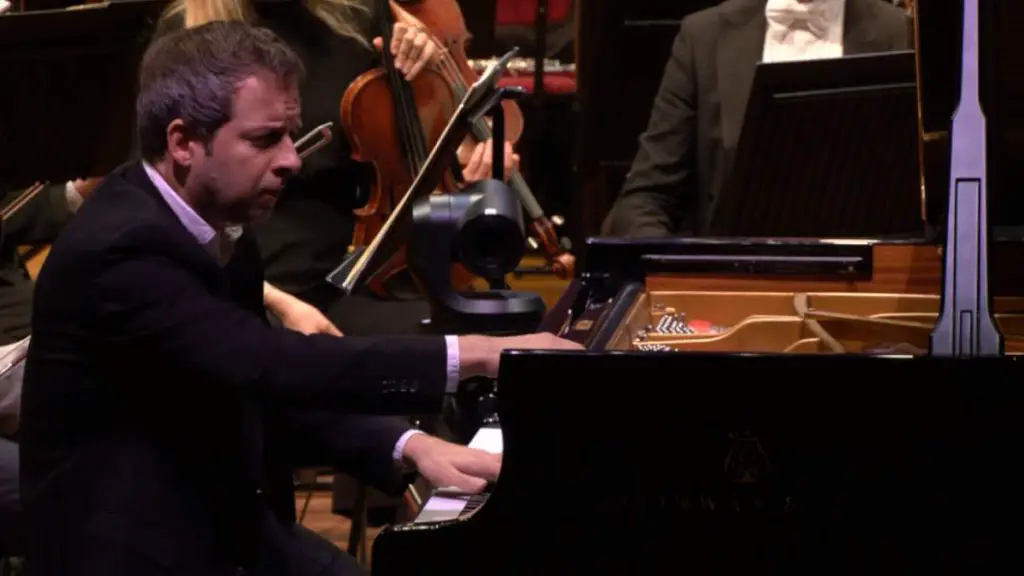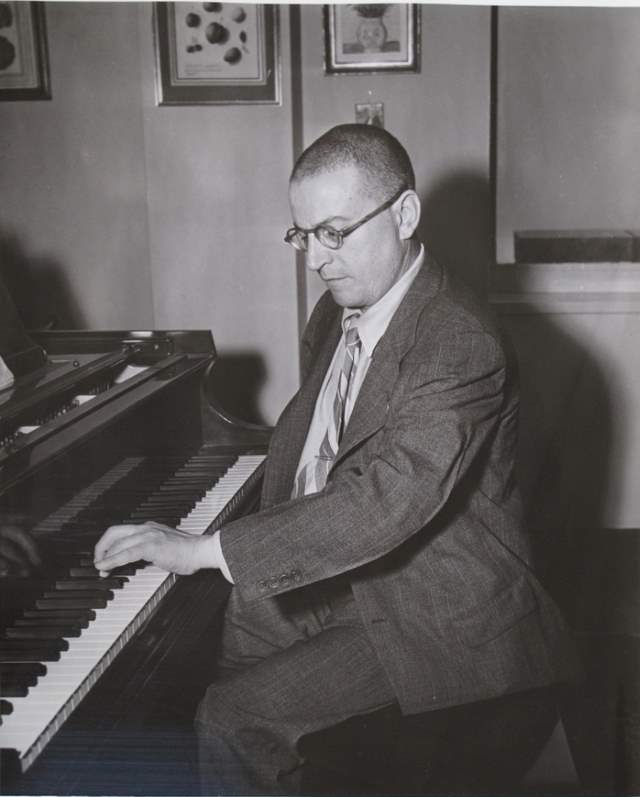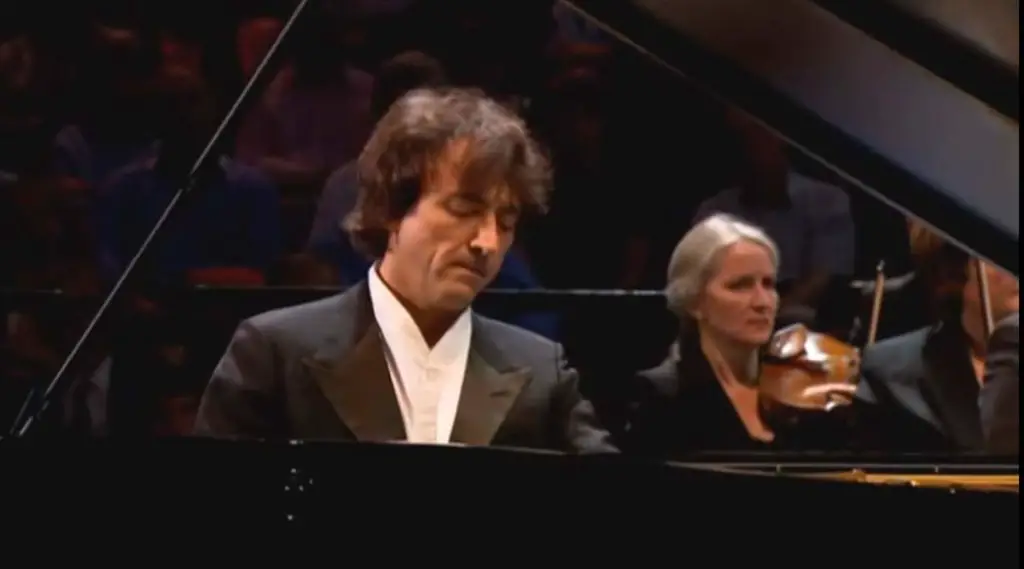Accompanied by the Orchestra of the University of Music Franz Liszt Weimar, prizewinning French classical pianist Hélène Tysman plays Maurice Ravel’s “Piano Concerto for the Left Hand in D major”. Conductor: Prof. Nicolás Pasquet. The piece was commissioned by the Austrian pianist Paul Wittgenstein (May 11, 1887 – March 3, 1961), who lost his right arm during World War I.
Tysman finished her final exam at Liszt University with this concert. The concert took place at the Neue Weimarhalle on December 8th, 2011.
Ravel’s Piano Concerto for the Left Hand
Maurice Ravel’s “Piano Concerto for the Left Hand” is a famous piece of music written specifically for pianists who can only use their left hand. It was commissioned by the Austrian-American pianist Paul Wittgenstein (November 5, 1887 – March 3, 1961), who lost his right arm during World War I.
The piece was written between 1929 and 1930. Despite being composed for a single-handed pianist, the concerto is known for its complex and challenging nature, offering an excellent demonstration of the surprising range and versatility of the piano when played by a skilled performer.
Ravel’s “Piano Concerto for the Left Hand” consists of a single movement but is structured in a form similar to the standard three movements of a concerto: slow-fast-slow. The concerto starts with a slow and gloomy introduction in the double basses, setting the stage for the main themes. This introduction then moves into the faster, jazz-influenced section. The piece concludes with a slower and more majestic variation of the main theme, culminating in an impressive and dramatic finale.

The concerto is an excellent example of Ravel’s orchestration skills, utilizing a large orchestra with an extensive percussion section, including a harp, celesta, and a variety of different types of bells. Its music is rich, intricate, and powerful, ranging from intense, driving sections to more delicate, evocative passages.
Interestingly, Paul Wittgenstein, who commissioned the piece, initially didn’t perform it as he had disagreements with Ravel about its interpretation. He didn’t like its jazz-influenced rhythms and harmonies. But, then, he grew to like the piece.
Wittgenstein gave the premiere with Robert Heger and the Vienna Symphony Orchestra on 5 January 1932. Ravel is quoted in one source as saying that the piece is in only one movement (Daily Telegraph, 11 July 1931, p. 364), and in another as saying the piece is divided into two movements linked together (Le Journal, 14 January 1933, p. 328).
The concerto has since been widely performed and recorded by many pianists and is considered one of the most significant works in the piano repertoire for the left hand. It’s a testament to the human spirit’s resilience and creativity, showing how limitations can be transformed into unique forms of expression.
Paul Wittgenstein

Paul Wittgenstein was born in Vienna, the son of the industrialist Karl Wittgenstein. His brother Ludwig was born two years later. The household was frequently visited by prominent cultural figures, among them Johannes Brahms, Gustav Mahler, Josef Labor, and Richard Strauss, with whom the young Paul played duets. His grandmother, Fanny Wittgenstein, was a first cousin of the violinist Joseph Joachim, whom she adopted and took to Leipzig to study with Felix Mendelssohn.
He studied with Malvine Brée and later with a much better-known figure, the Polish virtuoso Theodor Leschetizky. He made his public début in 1913, attracting favorable reviews. The following year, however, World War I broke out, and he was called up for military service. He was shot in the elbow and captured by the Russians during the assault on Ukraine, and his right arm had to be amputated.
After losing his right arm, Wittgenstein devised novel techniques, including pedal and hand-movement combinations, that allowed him to play chords previously regarded as impossible for a five-fingered pianist.
Hélène Tysman
Hélène Tysman (born December 30, 1982, Paris, France) is a prizewinning French classical pianist. She studied at the Paris Conservatoire under Pierre-Laurent Aimard and later with Oleg Maisenberg in Vienna. She obtained her master’s degree at Hochschule für Musik Franz Liszt, Weimar, under the guidance of Grigory Gruzman. Since becoming a laureate of the 16th International Chopin Piano Competition in Warsaw, Tysman has emerged as one of the leading French pianists of her generation.
Hailed as “poetic” by The Daily Telegraph and praised for her Chopin interpretation, which “mixed excitement with eloquence” by the Gramophone Chopin Express, French pianist Hélène Tysman first broke out onto the international music scene as a laureate of the 16th International Chopin Piano Competition in Warsaw.

A few years earlier she had been awarded First Prize in the European Darmstadt Chopin Piano Competition (Germany) and was a prizewinner in England (Newport International Competition For Young Pianists), Germany (Nauen International Piano Competition), China (Hong-Kong International Piano Competition) and the United States (Minneapolis International Piano-e-Competition). She is also a laureate of the Georges Cziffra Foundation in Senlis (France) and the Chopin Foundation in Hanover.
Her Chopin interpretations have been acclaimed by critics and audiences all over the world and have led to the 2010 release of an all-Chopin recording for Oehms Classics.
After graduating from the Paris Conservatory (CNSMDP) where she studied with Pierre-Laurent Aimard, she went to Vienna to work with Oleg Maisenberg and then to Germany (Hamburg and Weimar) where she obtained her master’s degree under the guidance of Grigory Gruzman.
As a soloist, she has played with orchestras such as the BBC National Orchestra of Wales, the Russian Chamber Philharmonic St. Petersburg, the Minnesota Orchestra, the North Czech Philharmonic Teplice Orchestra, and the Koszalin Philharmonic Orchestra, with conductors such as Christoph Warren-Green, Mark Russell Smith, and Antoni Wit. Her recital appearances have taken her throughout Europe, and to Israel, Morocco, Russia, and Asia, performing in prestigious concert halls like the Laeiszhalle and Neue Weimarhalle in Germany and the Cité de la Musique and Théâtre Mogador in France.
She has also been featured on the international arts television station Mezzo and on French national radio. A keen chamber musician, she released a Schumann recording with the soloists of Orchestre de Paris (Indesens Records, 2012). Attracted toward wider artistic horizons, Hélène Tysman also collaborates with artists from other disciplines, including a series of performances with the celebrated French actor Francis Huster (Chopin/Musset) and a Debussy/Poe show with the multi-disciplinary artist Yanowski.
Sources
- Piano Concerto for the Left Hand (Ravel) on Wikipedia
- Paul Wittgenstein on Wikipedia
- Hélène Tysman on Wikipedia

